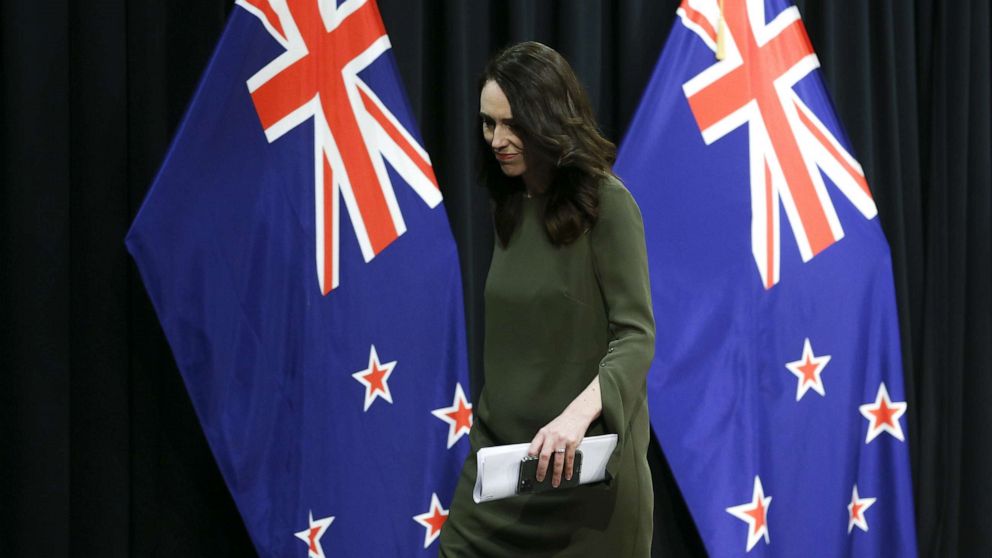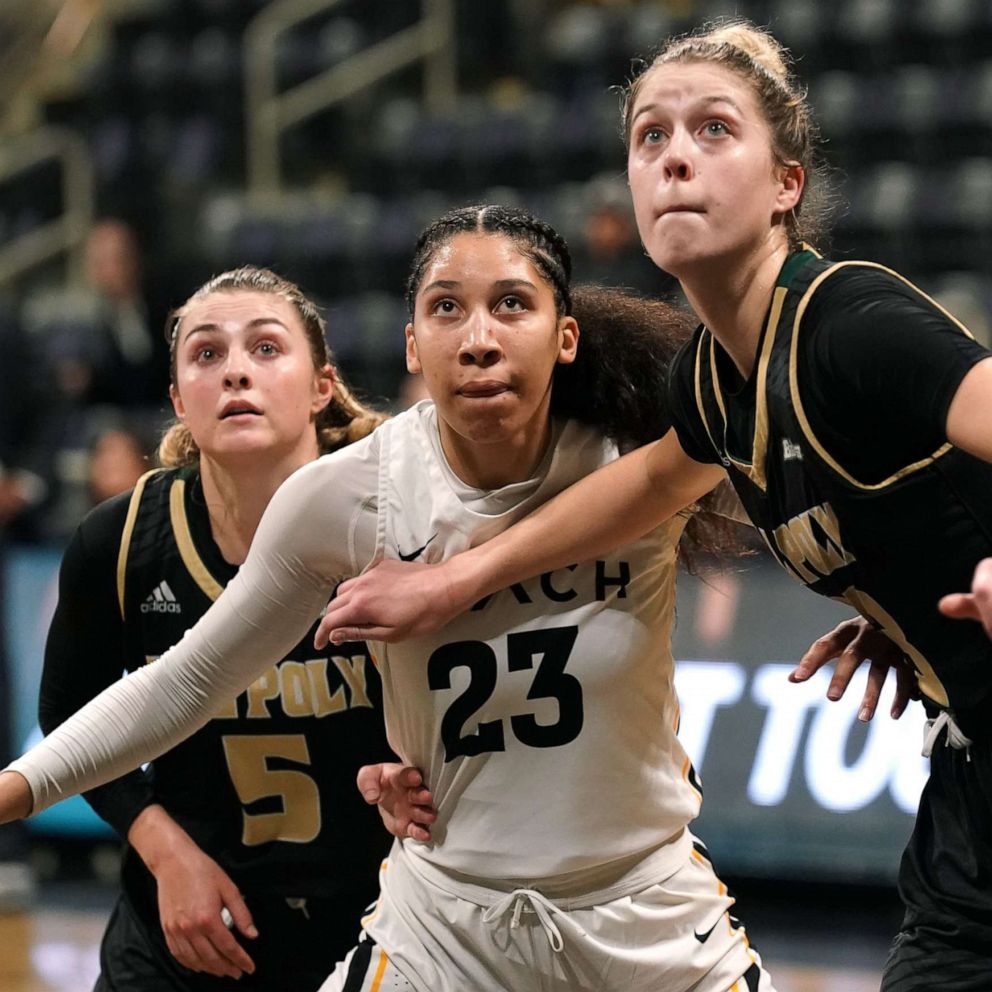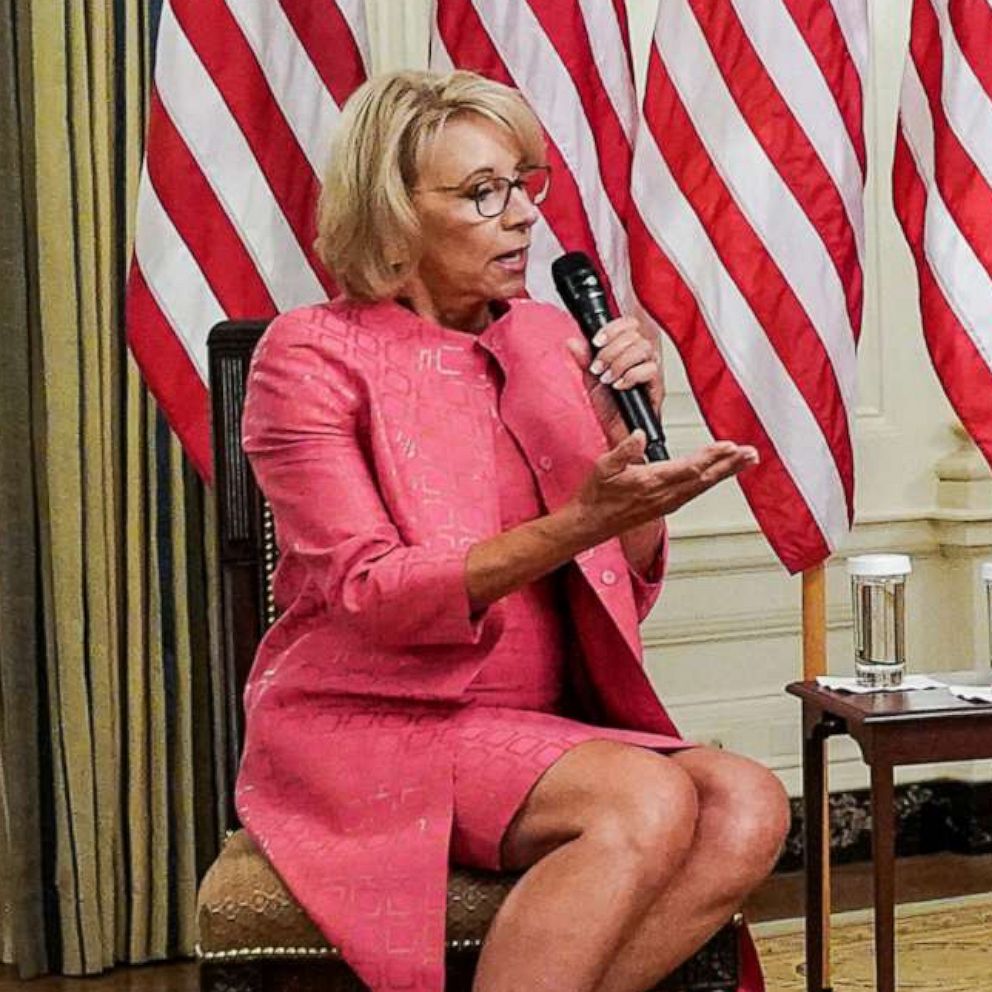New Zealand postpones general election due to COVID-19
The novel coronavirus has now killed more than 773,000 people worldwide.
More than 21.5 million people across the globe have been diagnosed with COVID-19, the disease caused by the new respiratory virus, according to data compiled by the Center for Systems Science and Engineering at Johns Hopkins University. The actual numbers are believed to be much higher due to testing shortages, many unreported cases and suspicions that some national governments are hiding or downplaying the scope of their outbreaks.
The United States is the worst-affected country in the world, with more than 5.4 million diagnosed cases and at least 170,028 deaths.
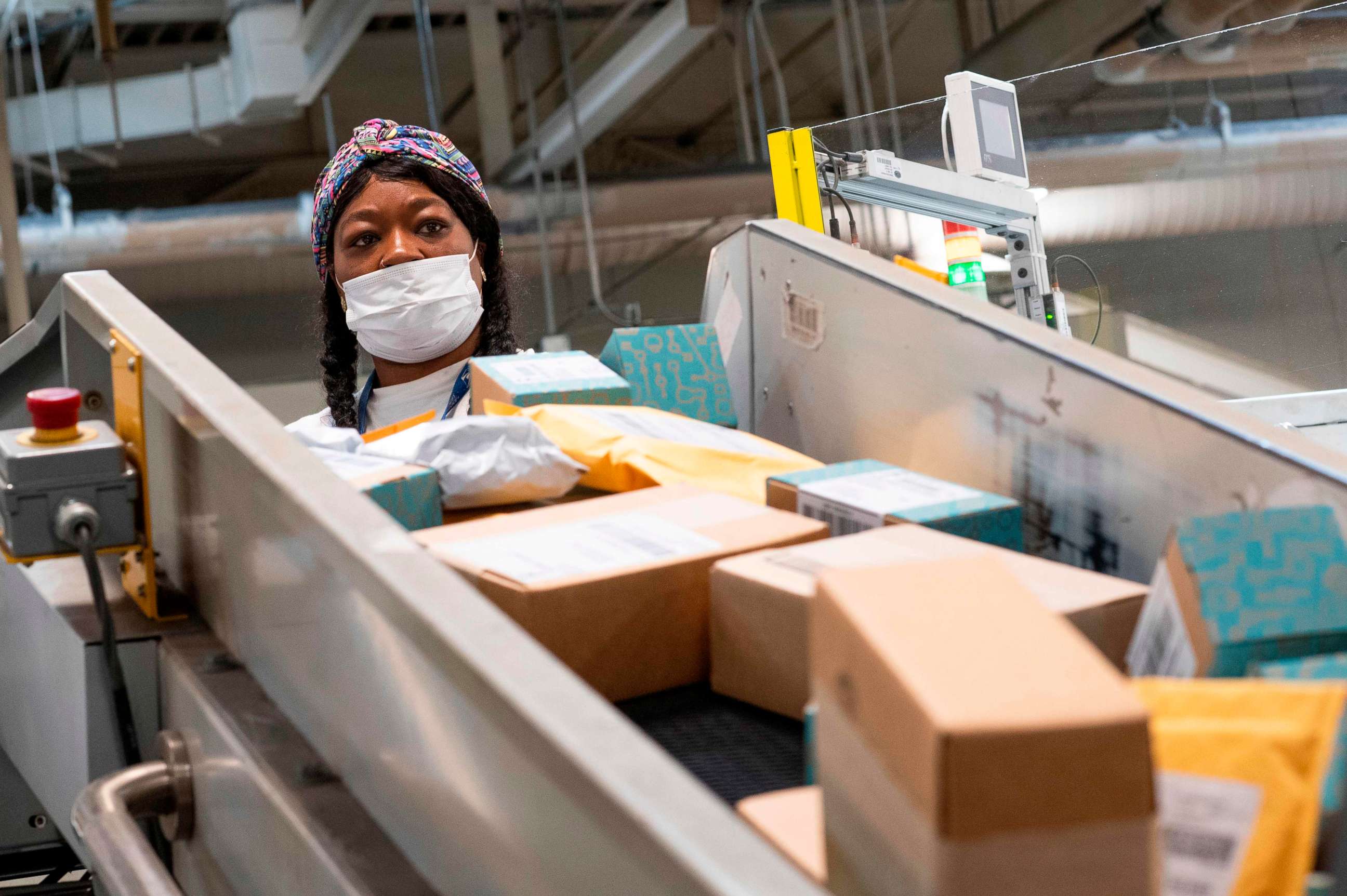
Sunday's headlines:
Editor’s Picks
Here's how the news developed Sunday. All times Eastern.
9:05 p.m.: US death toll surpasses 170,000
More than 170,000 people have now died from COVID-19 in the United States.
Johns Hopkins University reported 170,028 confirmed deaths right before 9 p.m.
Last week, the Centers for Disease Control and Prevention predicted in its latest forecast that the U.S. coronavirus death toll could reach 200,000 by Labor Day.
8:45 p.m.: New Zealand postpones general election due to virus
New Zealand's general election will be pushed back by four weeks due to a new coronavirus outbreak, Prime Minister Jacinda Ardern announced.
The election will be postponed from Sept. 19 to Oct. 17.
"Ultimately this was my decision," said Ardern, who is seeking a second term.
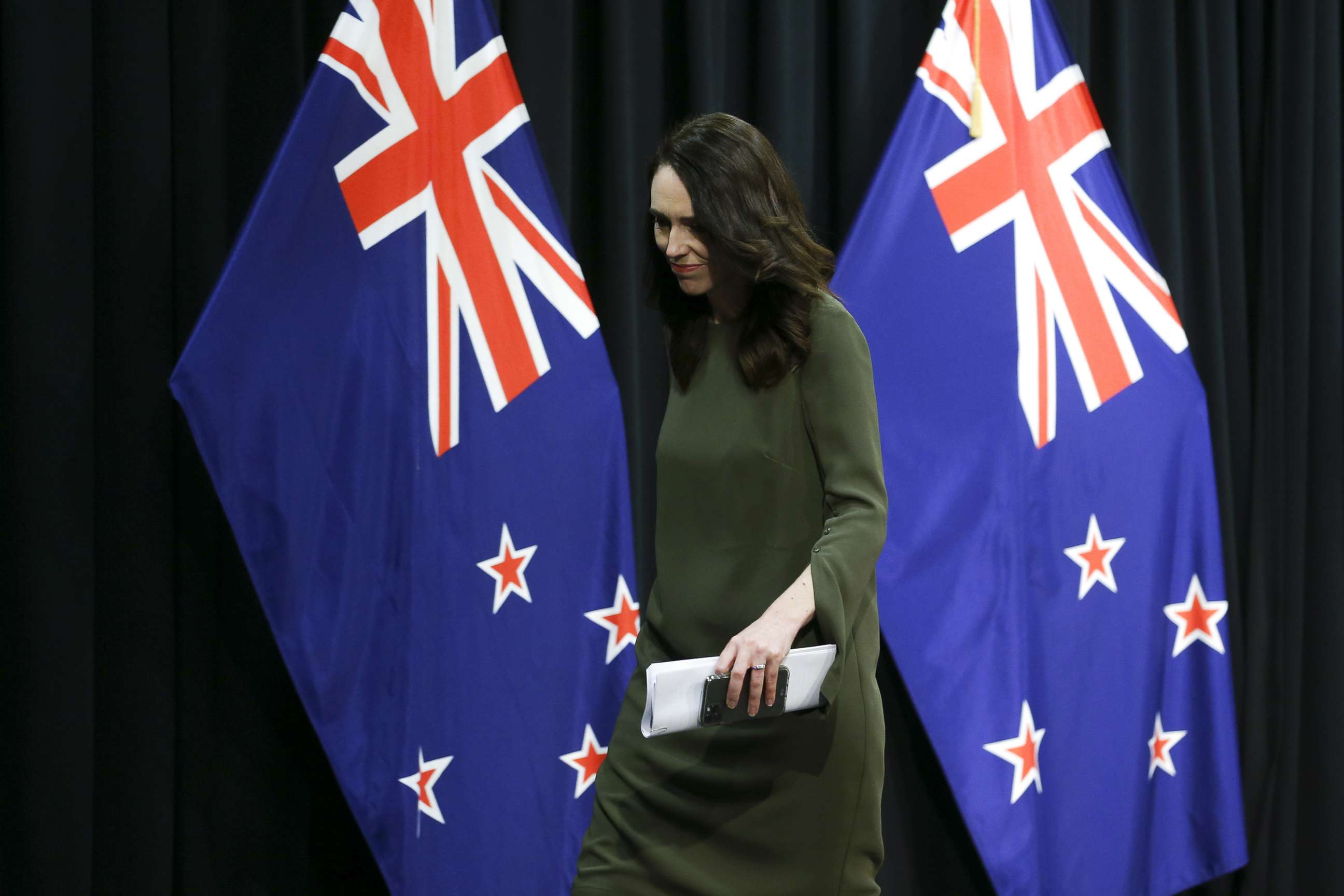
After initially containing the virus, New Zealand has experienced a resurgence of COVID-19 cases following 102 days without a report of community transmission.
New Zealand recorded an additional 13 new COVID-19 cases in the past day, according to the Health Ministry, bringing the total number of confirmed cases to 1,271.
On Friday, Ardern announced that Auckland -- the city at the center of the new outbreak -- will remain under lockdown for another 12 days.
7:25 p.m.: New cases down, deaths slightly up from previous week
New COVID-19 cases have continued to decrease, while new deaths went up slightly last week nationally, according to an internal FEMA memo obtained by ABC News.
There was a 3.6% decrease in new cases and a 0.8% increase in new deaths last week compared to the previous week, the memo said.
The national test-positivity rate also decreased: Last week, the rate was 6.4%, down from 7.7% the previous week, according to the memo.
6:10 p.m.: Alabama high school to temporarily close
An Alabama high school will close this week after several confirmed cases of COVID-19.
In a letter, the principal of Elkmont High School in Limestone County said the school will be closed from Monday through Friday, affecting students in the sixth through 12th grade. Students will do virtual learning while the school undergoes sanitization, the letter said, with a decision on reopening to come later this week.
Last week, four students tested positive for COVID-19, and 40 students -- nearly half of whom were on the football team -- were sent home to quarantine, Huntsville, Alabama, ABC affiliate WAAY reported. More than 300 students in the Limestone County school district are under quarantine, according to WAAY.
This marks the first known school in the state to close since Alabama school districts started reopening earlier this month, according to AL.com.
3:15 p.m.: UNC-Chapel Hill announces 4th cluster of cases in past 3 days
The University of North Carolina at Chapel Hill announced a cluster of cases at a residence hall, marking the 4th cluster discovered at the university in the last 3 days.
The cluster -- which refers to five or more cases in close proximity -- was found in Hinton James Residence Hall, the university said in a statement.
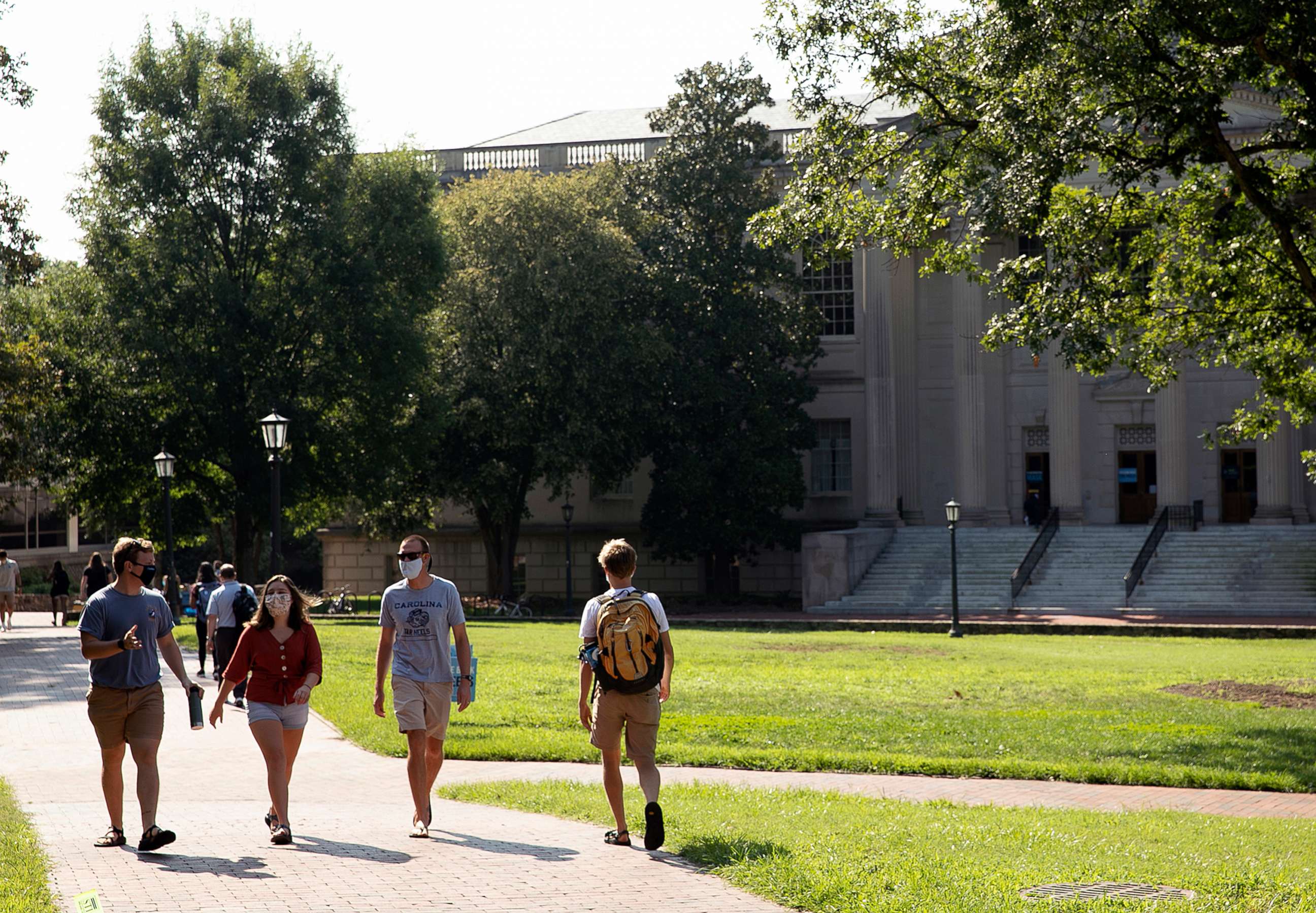
The individuals from this cluster have been identified, isolated and have received medical monitoring. The Orange County Health Department is also working to identify anyone else who may have been exposed.
Two clusters were found in residence halls -- Ehringhaus Community and Granville Towers -- on Friday. An additional cluster was discovered at Sigma Nu fraternity on Saturday, according to the university. Two other residence halls have also seen clusters
10:45 a.m.: 7 million tests conducted in New York state
New York state has conducted 7 million diagnostic tests for COVID-19 since the start of the pandemic, Gov. Andrew Cuomo said in a press release Sunday.
For the ninth straight day the percentage of positive cases in the state was below 1%. The state saw an additional 607 coronavirus cases and now has a total of 425,508 cases statewide.
Cuomo praised the "hard work of New Yorkers" for the decline in new cases.
"For more than a week, we've seen our positivity rate stay below 1 percent, and to date New York has done 7 million tests—these are remarkable accomplishments that New Yorkers should be proud of," Cuomo said. "But, we must not become complacent and risk slipping backwards — everyone must remember to wear their masks, socially distance, wash their hands regularly, and stay New York Tough."
Six deaths were recorded in the state on Saturday, increasing the New York death total to 25,250, the release stated.
3:52 a.m.: Rate of COVID cases in children 'steadily increasing'
The CDC has issued guidance to inform pediatric healthcare providers and said that while it is unclear whether children are as susceptible to infection by SARS-CoV-2 compared with adults and whether they can transmit the virus as effectively as adults, recent evidence suggests that children likely have the same or higher viral loads compared with adults and that children can spread the virus effectively in households and camp settings.
"The number and rate of cases in children in the United States have been steadily increasing from March to July 2020," the CDC's updated guidelines read. "The true incidence of SARS-CoV-2 infection in children is not known due to lack of widespread testing and the prioritization of testing for adults and those with severe illness. Hospitalization rates in children are significantly lower than hospitalization rates in adults with COVID-19, suggesting that children may have less severe illness from COVID-19 compared to adults."
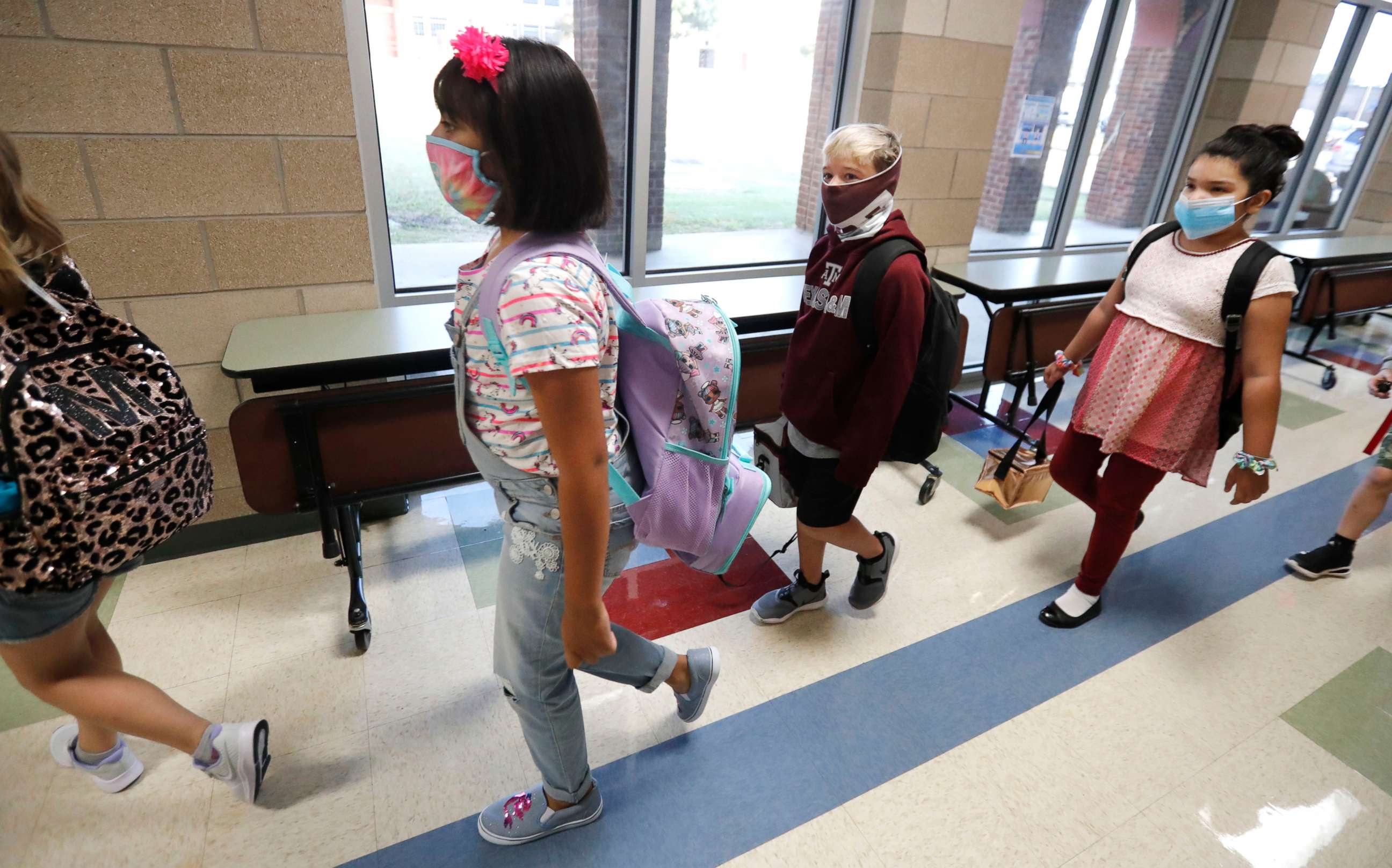
"While children infected with SARS-CoV-2 are less likely to develop severe illness compared with adults, children are still at risk of developing severe illness and complications from COVID-19," the statement continued. "Recent COVID-19 hospitalization surveillance data shows that the rate of hospitalization among children is low (8.0 per 100,000 population) compared with that in adults (164.5 per 100,000 population), but hospitalization rates in children are increasing.
The CDC also said that while children do have lower rates of mechanical ventilation and death than adults, on in three children who are hospitalized with COVID-19 complications in the United States were admitted to the intensive care unit -- the same rate for adults.
3:04 a.m.: Off-campus sorority house quarantined after 23 test positive for COVID-19, OSU says
Oklahoma State University officials announced Saturday that 23 people in an off-campus sorority house have tested positive for COVID-19.
According to a news release, Oklahoma State University officials learned Friday night of 23 positive coronavirus cases at the university's Pi Beta Phi chapter, an off-campus sorority house. The release states rapid antigen testing was performed at an off-campus health care facility.
“Due to the nature of this situation, the entire chapter house is in isolation or quarantine and will be prohibited from leaving the facility,” the news release states. “One member of the sorority who lives elsewhere is among those who tested positive and will also remain in isolation.”
Everyone involved is being monitored by Oklahoma State University and Payne County Health Department officials, and the release states contact tracing is being conducted to further protect the campus community.
University officials said the services of a third-party contractor have been enlisted to disinfect the facility and will do so again after the two-week isolation and quarantine period.
What to know about coronavirus:
- How it started and how to protect yourself: Coronavirus explained
- What to do if you have symptoms: Coronavirus symptoms
- Tracking the spread in the U.S. and worldwide: Coronavirus map
12:11 a.m.: Georgia governor issues new order to let some cities impose mask mandates
Georgia governor Brian Kemp issued a new order which renews existing restrictions for gatherings, sheltering in place, and businesses.
He said that local education leaders will continue to have full authority on how best to educate students and keep them safe in school.
“In late July, I asked Georgians to do ‘Four Things for Four Weeks’ to stop COVID-19," Kemp said in a statement issued on Saturday. Without a mandate, our citizens answered the call, and we are making progress. In Georgia, our statewide case numbers have dropped 22% over the last two weeks, and daily hospitalizations have decreased by 7% in the last seven days. We are on average testing over 31,000 Georgians daily at 180 SPOCs while maintaining a low rate of transmission. The positivity rate is on the decline, and the mortality rate continues to fall."
Kemp continued: “While encouraged by the data, we cannot grow complacent. This Executive Order extends the shelter in place order for the medically fragile, continues the ban on large gatherings, and maintains health and safety protocols for Georgia businesses. This order also protects Georgia businesses from government overreach by restricting the application and enforcement of local masking requirements to public property. While I support local control, it must be properly balanced with property rights and personal freedoms. As always, we encourage citizens to wear masks, watch their distance, wash hands, and continue to follow the guidance provided in the Executive Order. Together, we will protect the lives, livelihoods, and personal freedoms of all Georgians.”
ABC News' Ahmad Hemingway, Joshua Hoyos and Josh Margolin contributed to this report.
